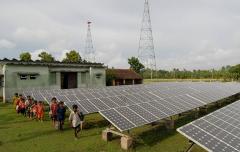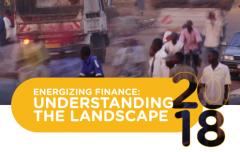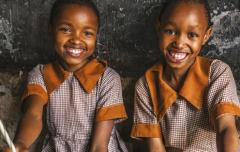Five key takeaways from the new Tracking SDG7: The Energy Progress Report
Despite the importance of reliable, affordable and clean energy for the achievement of all development goals and climate ambition, the world is falling short on meeting UN Sustainable Development Goal (SDG) 7 - ensuring affordable, reliable, sustainable and modern energy for all by 2030, according to a new report released today.
The latest Tracking SDG7: The Energy Progress Report shows global, regional and country progress on the three SDG7 targets of access to electricity and clean cooking, renewable energy and energy efficiency.
The report reveals electricity access is up from last year’s report, with 89% of people around the world now connected to some level of electricity. However, this means 840 million people in the world still do not have access, and 573 million of them live in Sub-Saharan Africa.
The number of people who do not have access to clean cooking has barely moved since the SDGs were agreed in 2015, or in the two decades before, with almost 3 billion people without clean cooking solutions - 2 in every 5 people on the planet.
In this time of climate emergency, the incremental progress on the rate of improvement of energy efficiency, slower than that which is needed, means the cheapest way to reduce global warming emissions is still not at the heart of countries’ development plans.




